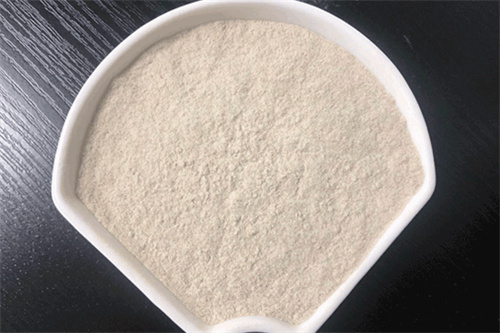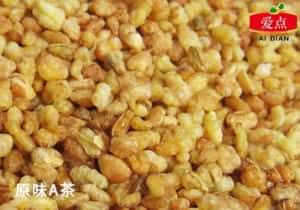Buckwheat is a highly nutritious whole grain that many people consider to be a superfood. Among its health benefits, buckwheat may improve heart health, promote weight loss, and help manage diabetes.
Buckwheat is a good source of protein, fiber, and energy. Buckwheat does not contain gluten, so for people with celiac disease or gluten intolerances, buckwheat and buckwheat flour are excellent dietary alternatives. Mixed Buckwheat Flour

This article will discuss the nutrition, health benefits, and side effects of buckwheat.
Buckwheat is a grain-like seed that grows throughout the United States. It is a pseudocereal as it shares many similar properties to cereals but does not come from grass as most other cereals do. Quinoa is another example of a pseudocereal.
Buckwheat is an ingredient in many everyday food products, such as breakfast foods, flour, and noodles. Farmers also use it for livestock feed.
Buckwheat contains a variety of healthful nutrients. It is a good source of protein, fiber, and healthful complex carbohydrates.
One cup, or 168 grams (g), of roasted, cooked buckwheat groats (hulled seeds) contains the following nutrients:
Buckwheat also contains vitamins, including:
The following sections look at the evidence for possible health benefits of adding buckwheat to the diet.
As a whole grain, buckwheat could have benefits for heart health.
The American Heart Association (AHA) recommend that at least half the grains in a person’s diet should be whole grains. Whole grain foods contain nutrients that are important for heart health, including fiber and niacin.
A 2015 systematic review found a link between diets that were higher in whole grain foods and a lower risk of heart disease. Animal studies have found that buckwheat may lower blood pressure, which can also improve heart health.
People who follow gluten-free diets may consume lower intakes of whole grains, which means they miss out on the health benefits they provide. Including buckwheat into the diet as an alternative to whole grains that contain gluten can deliver these benefits.
Buckwheat is a good source of fiber. According to the AHA, dietary fiber helps improve blood cholesterol levels, which, in turn, reduces the risk of heart disease, diabetes, stroke, and obesity.
Buckwheat is rich in fiber. Dietary fiber is a type of plant-based carbohydrate that the body cannot break down during digestion.
Fiber supports the intestines in digesting food efficiently and helps food move through the digestive tract. It may also have other benefits, such as encouraging weight loss and preventing cardiovascular disease.
One cup of buckwheat also contains 1.58 mg of the recommended 14 to 16 mg of niacin for adults. Niacin, or vitamin B-3, is essential for converting carbohydrates, fats, and proteins into energy for the body’s cells to use.
Being a good source of fiber and niacin makes buckwheat a good choice for digestive health.
Buckwheat is also a good option for weight management.
Satiety is the feeling of fullness after a meal. It is an important concept in preventing weight gain or promoting weight loss. Foods that increase satiety can offset hunger for more extended periods and may reduce the total number of calories a person consumes during a day.
Buckwheat is high in protein. Research has found that high-protein foods are essential for weight management because they lead to greater satiety with fewer calories than other types of food.
Including buckwheat in a healthful diet could lead to greater satiety and help with weight management. However, scientists will need to do further research into the effect of buckwheat and other whole grains to confirm this.
As a whole grain, buckwheat is a source of complex carbohydrate. This form of carbohydrate can help people manage their blood glucose levels.
The body takes longer to break down complex carbohydrates than simple carbohydrates. This slows down digestion and helps keep blood sugar levels stable for longer. White bread is an example of a simple carbohydrate.
According to the American Diabetes Association, whole grain foods are a good source of carbohydrate. These foods are an excellent source of energy and can provide fiber and minerals.
Animal research has found that buckwheat had a positive effect on insulin and blood glucose in mice with diabetes on a high-glucose diet. However, it is unclear whether these findings extend to humans with diabetes.
Buckwheat is generally safe to consume and should not cause side effects in most people.
It is possible for buckwheat to cause a reaction in people with buckwheat allergies. They may experience symptoms, such as swelling in the mouth, or hives, when consuming buckwheat. However, reports of buckwheat allergies are uncommon in the U.S.
Buckwheat is easy to incorporate into a healthy diet. People can buy buckwheat groats in health stores or choose between brands online. Buckwheat flour is also available in stores and online for making bread, pancakes, and baked goods.
People can eat raw buckwheat groats after soaking and draining the raw groats to make them easier to digest. Otherwise, boil the groats in water before adding them to salads, sides, or mains.
To add buckwheat into the diet, try the following recipe ideas:
Buckwheat porridge is a healthful alternative to standard breakfast cereals, or try making pancakes with buckwheat flour, which go well with berries.
Buckwheat groats make an excellent addition to a salad. Boil the buckwheat groats in salted water before adding to the salad.
To include buckwheat in a stir-fry, mix the groats with egg, then fry them over a medium heat for a few minutes before adding other ingredients.
Buckwheat muffins are a tasty, gluten-free option for dessert.
Buckwheat is a healthful and diverse food product. A range of foods, from cereal to pancakes, contain buckwheat.
Buckwheat has an excellent nutritional profile, with a high protein content. It may have benefits for heart health and digestion. It could also make a great addition to the diets of people with diabetes, or those trying to manage their weight.
Last medically reviewed on April 26, 2019
Ultra-processed foods that go through large amounts of processing can lose nutritional value and contain unhealthy elements. A new study adds to a…
Splendid Spoon are a plant-based meal delivery service. Here, we discuss the benefits of a plant-based diet and review Splendid Spoon and its menu.
People who ate prebiotic and fermented foods such as kimchi and kefir not only had lower stress levels but also had improved sleep quality.

Black Tartary Buckwheat Husk A small study suggests that snacking on approximately 46 almonds each day may help promote gut health by increasing levels of butyrate.